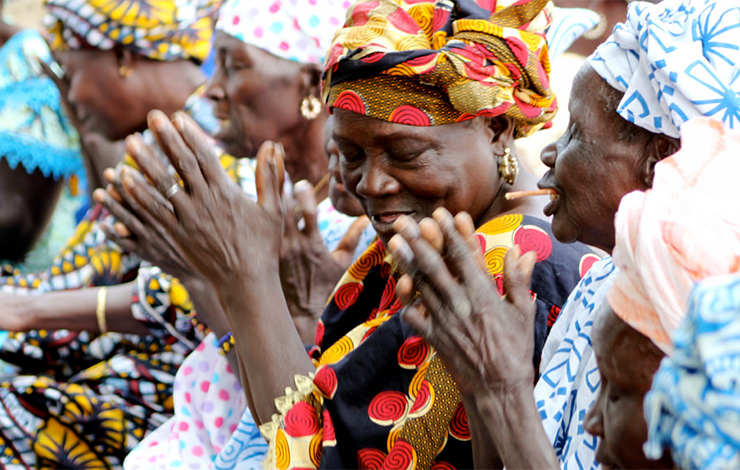Many women and children in Senegal – particularly those in rural and marginalized communities – lack access to civil vital records necessary to claim their legally guaranteed rights and benefits. To address this issue, CONAF is training local facilitators from five villages in Diourbel on civil registry and access to decision-making bodies, as well as developing training and registration materials for a series of community talks. CONAF aims to register 100 undocumented marriages and 350 undocumented births through its facilitators and its partnership with the Mayor of Ngogom.
Challenge

During the last three decades, advancing the rights of women and children has been the subject of a vast mobilization in Sub-Saharan Africa, which has led to the creation of several conventions on the protection of women and children. These include the United Nations 1979 Convention on the Elimination of All Forms of Discrimination against Women, the 2003 Protocol of the African Charter of Human Rights, and the 1990 African Charter on the Rights and Welfare of Children. Senegal has ratified these conventions, passed a series of laws and regulations to protect women and children’s rights, and passed a gender parity law in 2010. Despite these advances, women are still not equally represented at all levels in decision-making processes and serious threats to women’s and children’s rights still persist in Senegal, particularly in the rural region of Diourbel. Diourbel has large populations of marginalized and impoverished women and youth, as well as an unfavorable cultural and political environment for advancing women and children’s rights. Women lack access to decision-making bodies, and poor access to civil registry and vital documents such as birth certificates and marriage licenses further inhibit women and children from claiming their rights and accessing basic services.
Program Summary
Since 2012, CONAF – The National Committee for Literacy and Training – has implemented a Literacy and Apprenticeship Program (PALAM) in Diourbel, which works with 200 children age 9 to 15 in community schools, 250 working women age 24 to 49, and 75 youth age 16 to 24. Through this program, CONAF is working to raise awareness about women and children's fundamental rights and promote their social, economic, and political advancement. Their program includes the following components:
- CONAF Facilitator Training: CONAF facilitators are conducting trainings for men, women and children in the villages of Ndounème, Keur Mbaye, Mbary, Ngogom, and Sambène on the importance of vital records and local decision-making bodies.
- Local Representative Selection and Capacity Building: To sustain the knowledge gained from these trainings, three local program representatives have been identified and selected by each village. They are receiving additional training to oversee continued implementation of the program, and are serving as the intermediary between CONAF and local officials such as civil agents, village chiefs, and wise-women.
- Developing Educational Tools: CONAF is developing booklets and other educational and promotional materials in national languages, which address civil registry, women and decision-making bodies, violence against women, and women’s and health.
- Awareness Raising Campaign: CONAF is coordinating a series of community talks and forums to raise awareness about women’s and children’s rights, decision-making bodies, and the importance of vital records.
- Registration Caravans: Caravans are passing through the target villages to distribute educational materials, conduct interviews with women about their understanding of their rights and guaranteed services, and register 450 undocumented marriages and births.
Impact
Through this program’s educational activities and registration caravans, target communities are immediately benefiting from better access to vital records and improved knowledge of their rights and decision-making bodies. This program will also continue to have an impact beyond the project’s implementation period, as local program representatives now have a suite of tools for educating their communities and continuing to register marriages and births. Furthermore, educational materials developed through this program have become part of the PALAM literacy program, which will help popularize issues of youth and women's rights.

